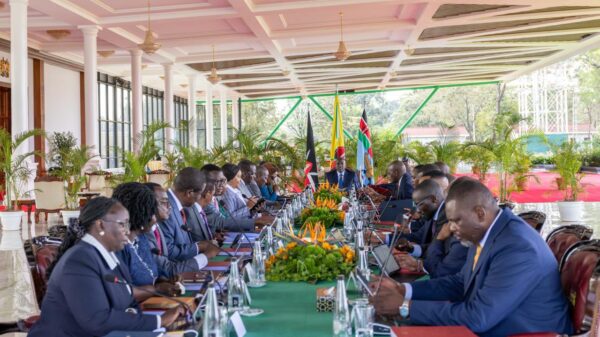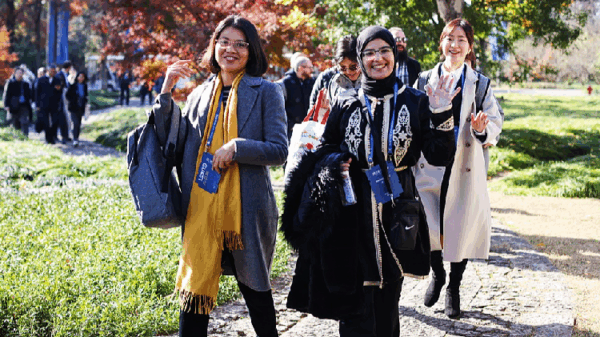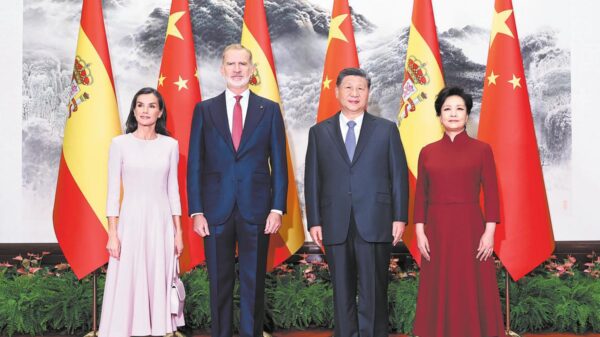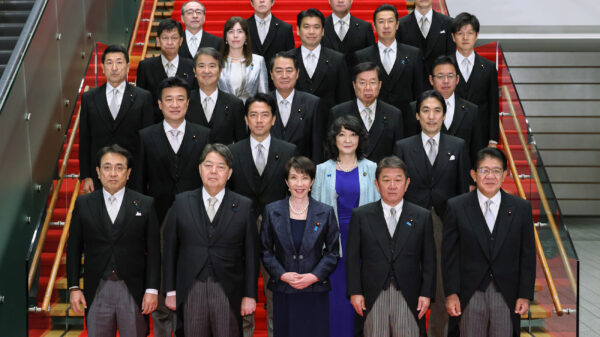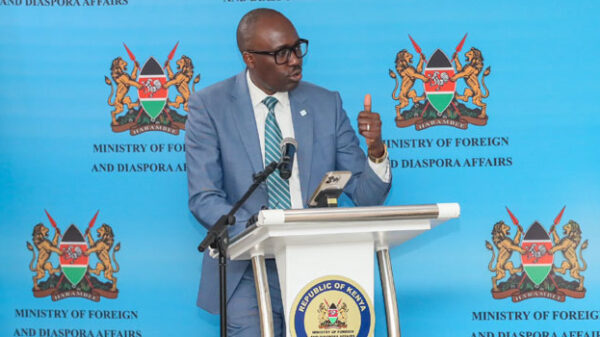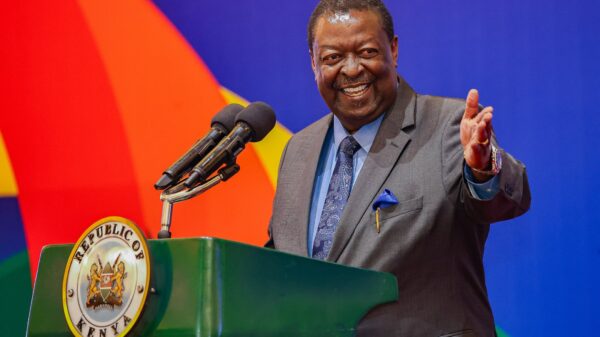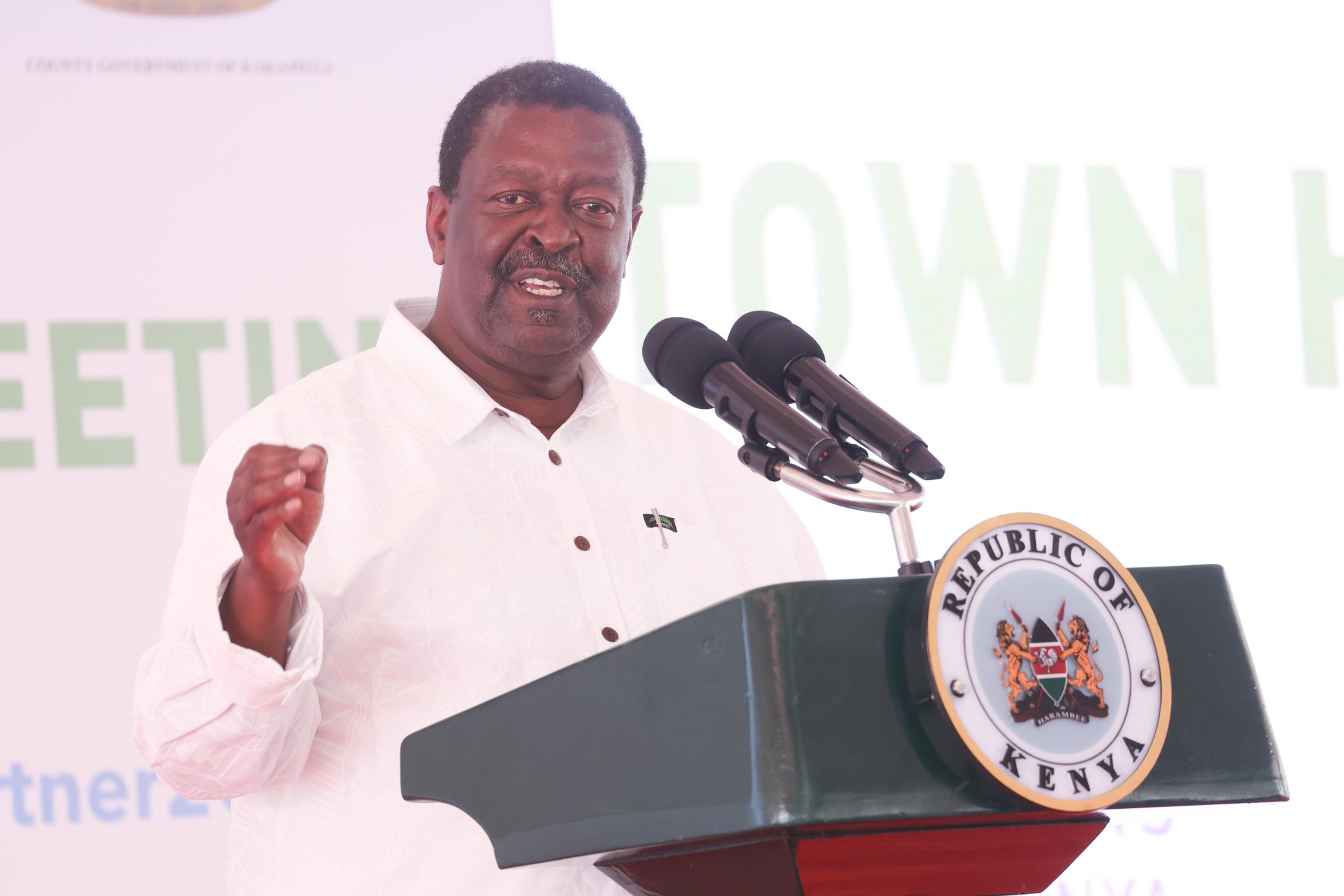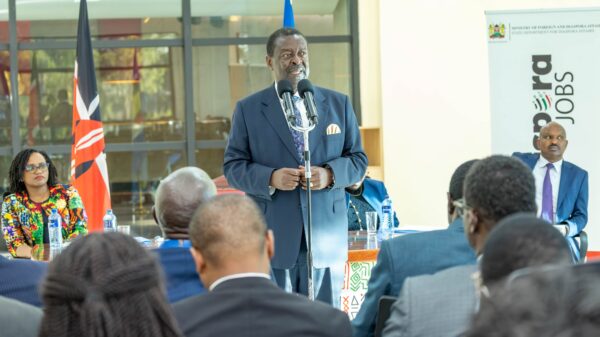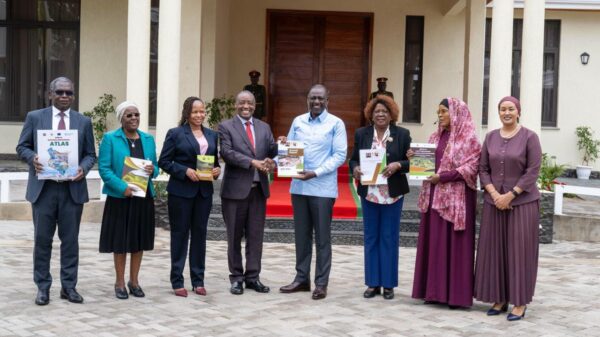NAIROBI, Kenya, Nov 13 — The government is considering a bold proposal to publicly list and expose rogue recruitment agencies that exploit Kenyans seeking jobs abroad, in a bid to curb the rising tide of human trafficking and overseas job scams.
Prime Cabinet Secretary and Foreign Affairs Minister Musalia Mudavadi said discussions are underway to establish a framework for “naming and shaming” fraudulent agents preying on vulnerable Kenyans pursuing foreign employment opportunities.
“This is not enough, as discussions are ongoing for a proposal to publicly list these agencies that exploit our people — basically to name and shame,” Mudavadi said.
Speaking during a media briefing at the Ministry of Foreign and Diaspora Affairs headquarters, Mudavadi highlighted the alarming rise in human trafficking, forced labor, and online criminal exploitation, particularly in parts of Southeast Asia.
He revealed that since July 2022, the Kenyan Embassy in Bangkok, Thailand, has rescued and repatriated about 500 Kenyans, with 126 others still awaiting evacuation — 69 in Thailand and 57 in Myanmar.
Many victims were duped by fraudulent online job advertisements and trafficked into criminal syndicates involved in cyber scams, illegal cryptocurrency trade, and even organ harvesting.
“The saddest thing is that it is spiraling out of control, with victims trafficked from Africa to South America and Europe. They [are] lured by fake job adverts claiming opportunities in Asia,” he said, noting the groups operate in a sophisticated manner.
Online ads
He explained that traffickers place online ads on platforms such as Facebook, Instagram, Signal, X (formerly Twitter), and YouTube, offering jobs ranging from receptionists, sales staff, and cooks to cryptocurrency traders, drivers, translators, and factory workers.
The government estimates that over 400 Kenyans have fallen victim to such scams in the Far East, including Vietnam and Cambodia.
Scammers have trained some victims in cybercrime, raising national security concerns that they could replicate scam operations upon returning home.
Mudavadi noted that the government has delisted nearly 600 rogue recruitment agencies, both local and foreign, and urged Kenyans to seek overseas employment only through accredited agencies vetted by the National Employment Authority (NEA).
Awareness
He appealed to the media to support the government’s efforts by raising awareness and exposing criminal networks behind trafficking rings.
“We will rely heavily on the support of the media so that we can deal with this menace,” he emphasized.
Mudavadi also outlined Kenya’s ongoing bilateral labor agreements aimed at creating safer employment opportunities abroad.
The deals include a pending additional agreement with Saudi Arabia for skilled and semi-skilled workers and mutual recognition framework with the United Arab Emirates for academic and professional qualifications.
The government is also seeking amendments to the 2012 labor agreement with Qatar, following the recruitment of 3,000 Kenyans, with 5,000 more positions in the pipeline, and a new Memorandum of Understanding with Jordan to open skilled employment opportunities.
Mudavadi noted that Qatar currently employs over 70,000 Kenyans, while Saudi Arabia hosts more than 200,000.
However, he cautioned that human traffickers increasingly target jobseekers through social media platforms such as Facebook, Instagram, Signal, X, and YouTube, offering fake jobs as drivers, cooks, receptionists, and cryptocurrency traders.
Active investigations
He also revealed that Kenya is investigating cases of citizens allegedly recruited to fight in the ongoing Russia-Ukraine conflict, with over 200 Kenyans reportedly duped by networks promising payments of up to $18,000.
A recent multi-agency raid in Athi River rescued twenty-one Kenyans who were awaiting deployment to the war zone.
Mudavadi reaffirmed that Kenya’s foreign policy on labor migration prioritizes protecting citizens, strengthening diaspora diplomacy, and ensuring ethical recruitment practices.
“Though significant progress has been made, we are also aware of weaknesses that put our citizens at risk due to unscrupulous foreign agents,” he said.
According to the United Nations Office on Drugs and Crime (UNODC), human trafficking is one of the world’s largest criminal enterprises, generating over $150 billion annually in illicit profits.
Mudavadi said the government’s strategy will include a nationwide awareness campaign, stronger legal enforcement, comprehensive victim reintegration programs, and the proposed public listing of rogue recruitment agencies to deter future exploitation.











